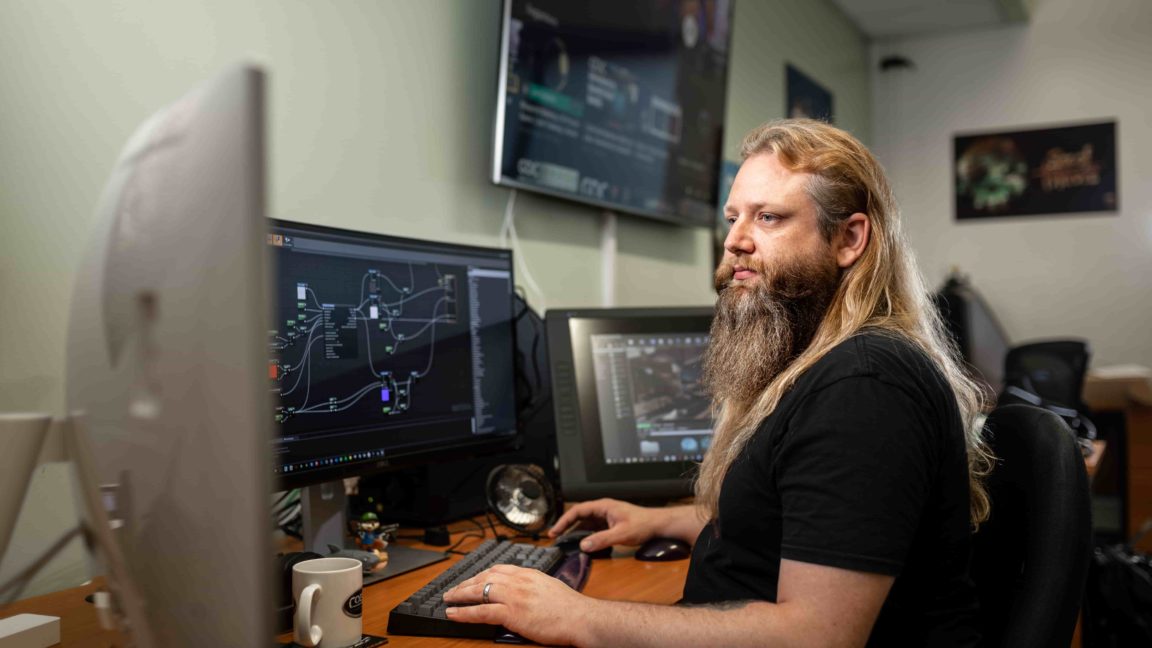Breaking down barriers in medtech
Kieran Perkins, Technology Innovation Manager at Grow MedTech, describes how we are supporting more and more digital healthcare technologies and combining digital with other technologies.
Digital technologies are breaking down the walls of the medtech industry, enabling companies – and academics – that are new to medtech to apply their knowledge within the sector.
This is true at all levels, from big players such as Apple (who recently appointed a senior cardiologist) and Google (who recently bought Fitbit) to the smaller companies and individual academics who are using their know-how to develop digital health technologies.
Dr Steven Fenton from the University of Huddersfield, for example, is an electronic engineer with a research interest in audio quality in music production.
Grow MedTech is supporting his project to create a 3D ‘audio map’ to help blind and visually impaired people navigate their surroundings.
He is adapting software he developed for another purpose to translate a visual image into a sound picture and identify potential obstacles in the user’s path.
Following the same pathway
Although digital health products may seem very different to traditional medtech, the same criteria need to be applied to their commercialisation.
Dr Fenton has received our earliest stage funding, to help him establish clinical need and market opportunity for the software and identify the best direction to take.
The same questions need to be asked of this project as for any other – for example: does this technology meet a clinical need, is there a commercial opportunity for it, what competitors are already out there?
But that’s not to say there aren’t new challenges and questions being raised by digital healthcare technologies, and these focus mainly on trust, transparency and data management.
Will patients trust decisions made by software, rather than people? How clear can we be about how decisions or results are arrived at, when this is done by an algorithm? How will the data gathered be used, stored and managed – and who owns that data?
The regulatory bodies are themselves still battling with many of these questions, though some changes are already in the pipeline.
New EU regulations for medical devices (MDR) and in vitro diagnostic medical devices (IVDR) due to be introduced place more stringent requirements on the majority of digital technologies – essentially any that affect diagnostic or therapeutic decisions.
This will result in a more onerous regulatory process which has caused some companies to revise their strategies.
The challenge of AI in Health Tech
The EU’s Ethical guidelines for trustworthy Artificial Intelligence (AI)’ set out factors which need to be continuously evaluated and addressed throughout the AI systems lifecycle and this will impact on all health technologies that use AI or machine learning.
A key difference in a medical device that’s built on machine learning is that it’s not set in stone once developed.
Unlike a more traditional device, an algorithm is intended to be dynamic and evolve over time which means it can keep improving and changing as it learns more from more data.
We’re supporting a project at the University of Bradford using machine learning to assess the quality of donated organs for transplant.
Assessing organ quality is complex, requiring multiple factors to be taken into account and some subjectivity can’t be avoided.
As such, individual surgeons, teams and hospitals can come up with different assessments for the same organ. The surgeon conducting the transplant has to make the final call – a very difficult decision, particularly with organs of marginal quality.
Professor Hassan Ugail is developing an algorithm that can score organs more objectively, by combining multiple data sets – including lab test results and patient survival rates – with a colour spectrum analysis that has been shown to relate to quality.
The aim is to combine the expertise of multiple professionals into one assessment tool that grades the organ to give the transplant surgeon more confidence of success, so that no organ is unnecessarily rejected.
The regulation for technologies such as this may still be uncertain, but at Grow MedTech we don’t let this block development in any way.
Instead, we carry out horizon scanning, identifying the trends and ensuring projects put in place the elements they are likely to need for likely future regulation, to mitigate any risks.
This usually means showing project teams have considered those key issues of trust, ethics, transparency and data management. These can be addressed by ensuring end user or patient involvement, or by bringing in specialist expertise.
Combining expertise
A project we’re supporting at Sheffield Hallam University, involves Dr Lynne Barker, who is working with a software development house with no previous experience of medtech.
We’ve brought in a regulation specialist to work with the company, to ensure they fully audit and evidence the necessary steps during development to meet regulatory requirements.
The technology is based on a test – in the form of a cooking exercise – to assess cognitive function in people with traumatic brain injury, stroke or mild cognitive impairment (the precursor to dementia).
In trials, the test was able to distinguish between the three conditions. Patients with mild cognitive impairment didn’t complete the ‘meal’ on time, those with stroke usually forgot an ingredient whereas those with traumatic brain injury tended to undercook the food.
The software company is now developing this into an app that can go into clinical trials.
At Grow MedTech, we’re supporting more and more digital healthcare technologies or projects that combine digital with other technologies.
These are often exciting projects to work with, as the speed of development can be much faster than traditional medtech. But however rapid the development itself is, there’s no substitute for properly assessing the potential for commercialising the technology.
And this is where our help and support, for digital as for other technologies, can really make the difference.

